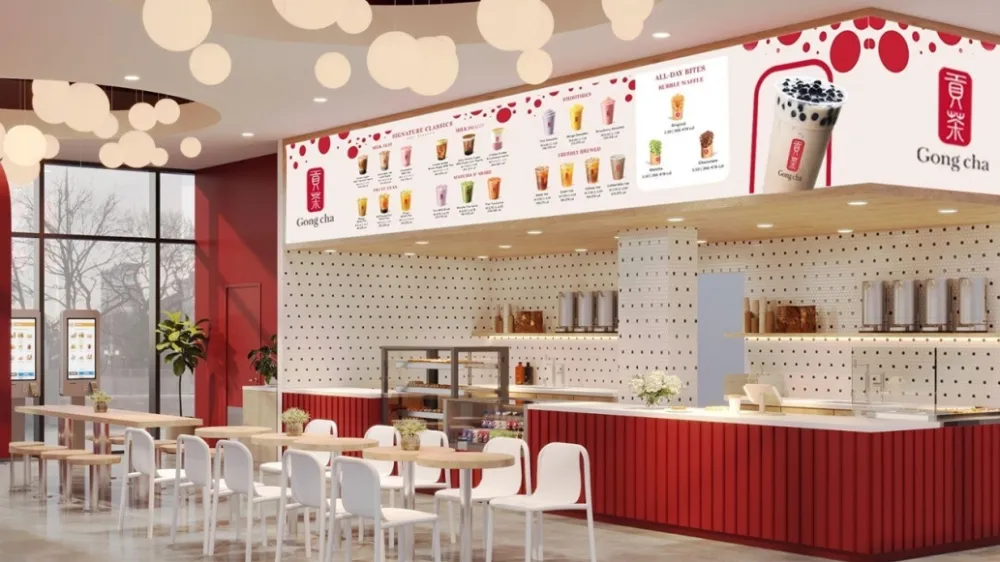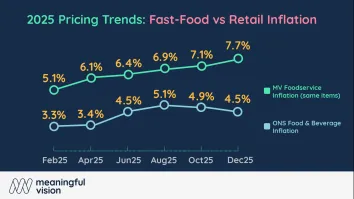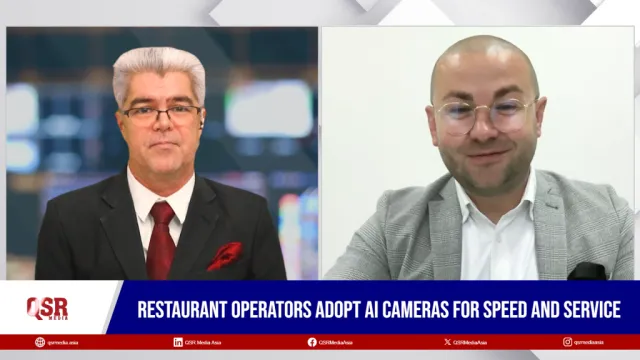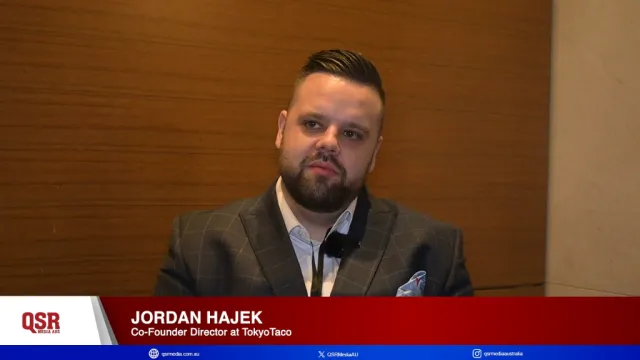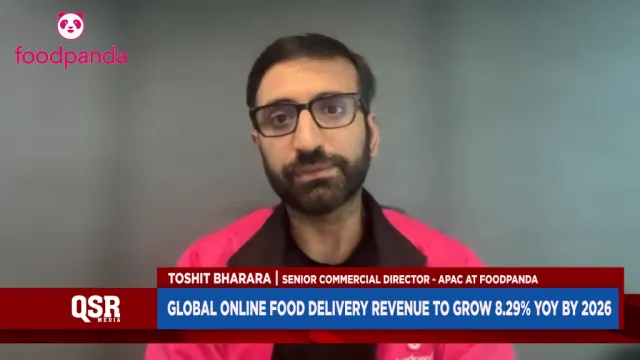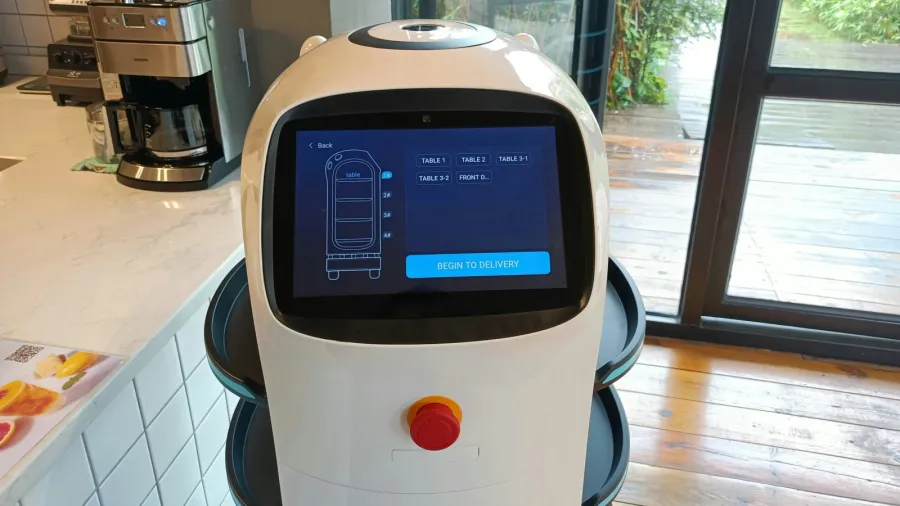
Why the restaurant industry’s rush to automate keeps hitting a roadblock
Unclear return on investments is making the industry hesitant.
As AI and automation become essential tools in the quick-service restaurant (QSR) industry, operators are facing a new challenge: balancing the potential for increased efficiency with unclear ROIs.
In the UK, Josef Chen, CEO and co-founder of F&B robotics and AI firm KAIKAKU, said he noticed that there is an ‘urgency’ within the industry to automate, driven by expected higher labour costs with the new government.
But despite this, there is no major news of QSR brands in the UK experimenting with AI and automation.
Josef said this may be due to unclear ROIs.
“Not much automation and AI has been deployed in practice as most ‘retrofit’ solutions have failed to showcase clear return on investment. Karakuri, for example, had to file for bankruptcy in 2023 despite running pilots with Nando's. It is becoming increasingly clear that both AI and automation will require an end-to-end vertical integrated approach rather than trying to retrofit automation for a human-centric process,” Josef said
Anson Chuang, founder of Mountview Consulting, a provider of technology and data management solutions for hospitality businesses, said that there are a lot of expectations from senior management that AI can help improve things. However, despite suppliers responding to requests, there haven’t been any groundbreaking innovations. Expectations are also higher than what has been delivered.
“In the UK, it is hard to get chains to ‘give it a go’. Margins are tight and tech suppliers don't get much budget from the clients to invest,” Chuang said.
This means, only larger chains are currently making a push towards innovations in AI and automation. Maria Vanifatova, CEO of data intelligence and insights firm Meaningful Vision, said these chains will likely be experimenting in the US first.
“Some technological solutions may come to the UK after they are proven and tested in the US The UK may play an important role in the further implementation of these technologies, as it is traditionally seen as a bridge to Europe, with many U.S. brands testing their concepts in the UK before expanding further. At the same time, the UK is one of the international hubs for AI development, so some ideas could emerge locally. As far as I know, many companies are already using ChatGPT-type solutions to analyse customer feedback in different languages and create marketing messages,” Vanifatova said.
Jimmy Tjhie, Founder of Methusellah Limited which operates the Japanese concept Yari Club, believes AI and automation are no longer a novel concept but an essential tool for raising operational standards.
Tjhie said he had seen significant changes, particularly with the Home Office’s introduction of a higher salary threshold for skilled workers requiring sponsorship. This policy has created some challenges for the industry in attracting international talent, which is crucial for maintaining the UK’s competitive edge.
“Combined with ongoing economic pressures, as indicated by recent CPI data, these factors suggest that the road to full recovery may take some time. However, the rise in customer expectations—driven by exposure to more critical and educational content on social media—has pushed businesses to innovate faster than ever. AI and automation are key solutions to meeting these heightened demands, helping companies stay agile and efficient in a rapidly evolving market,” Tjhie said.
Tjhie’s restaurant The Yari Club utilises a robotic yakitori machine that has an expected turnover for each skewer that would rival the speed of fast-food restaurants.
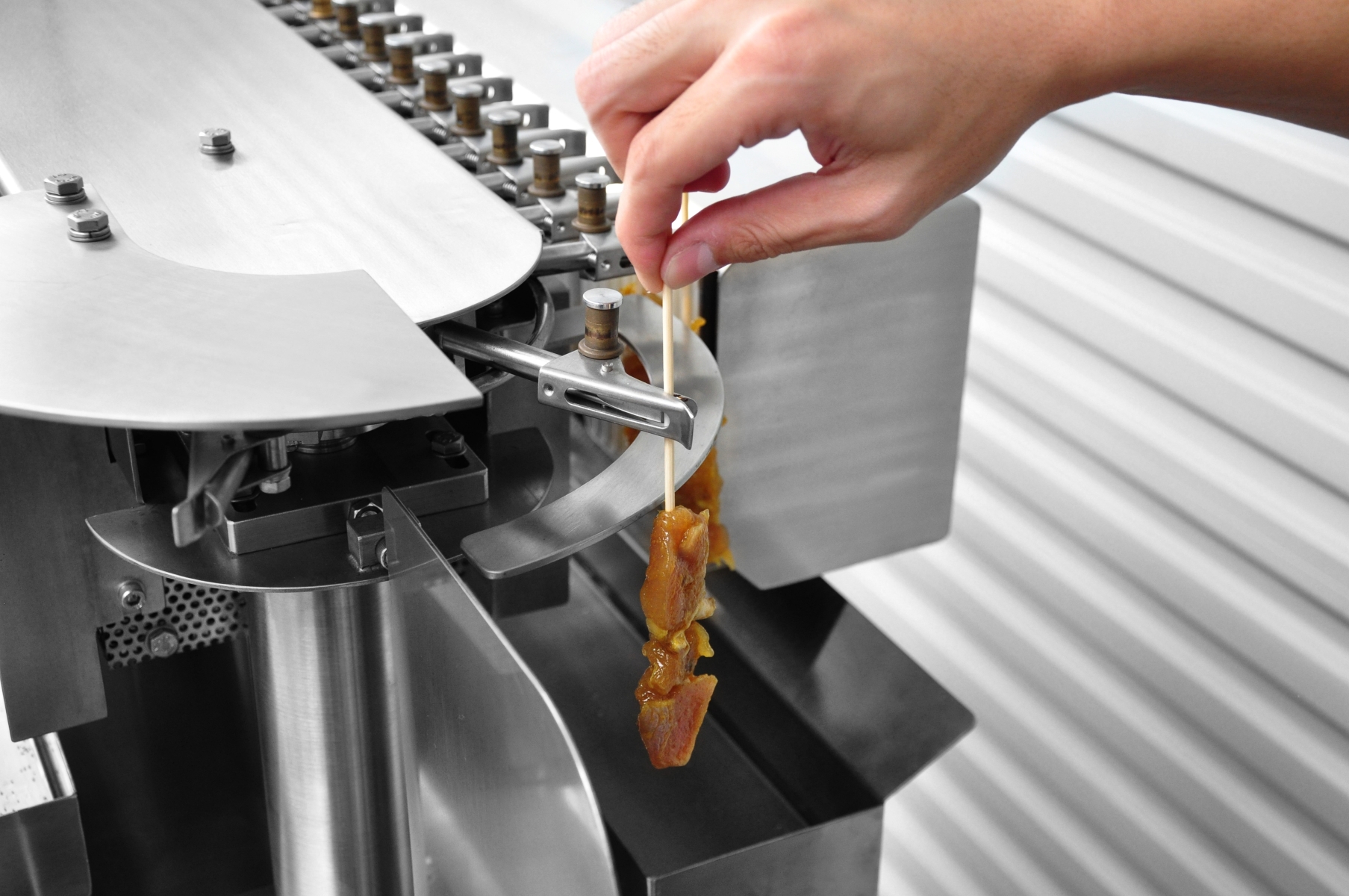
“Although it varies every season, we have to get the settings right since this will be our first year trading in the UK, so we will take some time to find the ideal settings for each season, tailoring the taste to the best of every variable situation,” Tjhie said.
Experimental
For the most part, AI and automation technologies are still in the experimental phase. In the US, McDonald’s decided to halt its AI voice drive-thru experiment.
On the other hand, Yum! Brands’ Taco Bell has announced its confidence in its voice AI technology, expanding it to ‘hundreds’ of restaurants in the US. Yum! Brands has also tentatively tested it on its other brands, with KFC Australia incorporating it into five of its restaurants.
“The reason companies are heavily investing in this field is clear—if successful, the technology could help reduce staff and decrease costs. Further advancements in voice recognition technology could make customer interactions more efficient, with AI systems taking orders through drive-thrus or even over the phone with the same accuracy as people,” Vanifatova said.
Is it worth the cost?
Tjhie believes that robotics and tech investments are worthy ventures, especially regarding reducing costs related to recruitment, training, and maintenance of labour, which he says is gradually becoming more complex year by year.
However, said that whilst the direct, financial cost of investing in new technology or equipment is comparable to other similar investments in the food and beverage (FnB) industry, there are additional, less tangible costs involved such as R&D expenses, time, effort, and the strategic planning required.
For Chuang, the larger chains that currently can invest in these technologies will stand to benefit.
“There are two areas that AI can help. First is efficiency by improving rotas and ordering by forecasting better, finding, and prioritising problems [as they come]. Secondly is in sales by understanding customers better and [creating upselling opportunities]. There are also other side areas where AI, specifically large language models can help, like marketing and customer service but these are outside of the main operations of the business.
Tjhie suggests measuring these intangible ROIs by looking at how effective the new tech or equipment is in establishing the business in the market and how well the investment contributes to retaining customers.
For Chen, he believes there are a lot of interesting uses for AI and automation. One such example is the use of Computer Vision for quality assurance and allergen management, as well as AI that helps track in-store wait times, and conversation rates which they are currently improving on.

